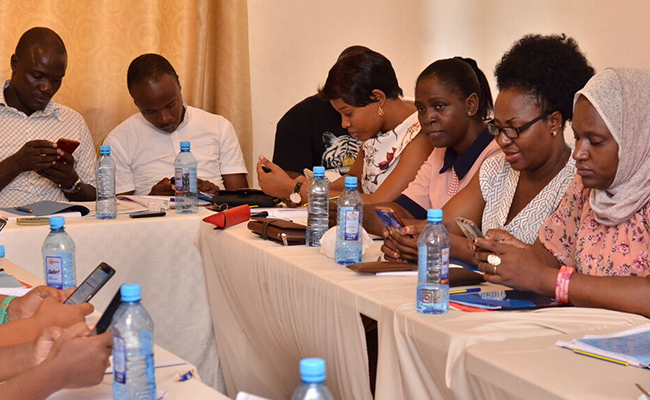Today’s world is volatile and complex, and business is continually being reshaped and reshaped again. Thus, Kenya’s businesses are beginning to appreciate the need for a united and robust teamwork culture. What used to be a mere recreational activity conducted in corporate companies is now a crucial business tool organizations use to improve employee productivity and morale and foster effective teamwork. The Kenyan market especially has sought efficient team-building activities since managers and company owners want their employees to perform effectively in a healthy environment for creativity and teamwork.
The Power of Team Building in Kenya
Team building in Kenya is not just a chance for the employees to relax and take a break from work and work stress. It is a speculative investment into organizational and people development capital. A diverse team represents the current multinational working environment, where all members have proper skills, viewpoints, and backgrounds. However, these differences can become obstructions rather than strengths if not complemented by cooperation and coordination.
At this juncture, the whole concept of team building comes into the picture. Properly planned activities can easily remove the supposed barriers to the communication process, and employees can also be made to feel that they are in one team. The field of operation in many Kenyan organizations can be characterized by dynamism and stiff competition. Thus, the efficient and effective way the different teams are integrated cohesively tends to define a firm’s success.
Why Team Building Matters
- Enhanced Communication: The purpose of team building activities is to enhance the flow of communication between employees, which is one of the significant advantages. In most organizations in Kenya, communication breaks result in poor productivity because individuals or teams have a poor understanding of their organization’s objectives. Communication exercises usually performed as part of team-building processes entail group problem-solving and discussions, allowing members to voice themselves. Consequently, different personnel gain increased familiarity with each other, and there will be less friction that routine interactions in the work organization may cause.
- Strengthened Relationships: Remember the experience when, due to the numerous daily practical occupations, a worker can become enclosed into their position and perform the necessary work, not realizing the absence of communication with co-workers from the other departments. In Kenya, team building is focused on improving the interpersonal relationships among staff since most of them are developed on business aspects. Research also shows that good internal team relations contribute positively to job satisfaction; hence, job satisfaction and the perception of belonging to the team also foster employee retention.
- Increased Productivity: People working together and eager to perform their tasks create a productive team. This means that team-building activities are usually more complex and competitively challenging, so they offer the required pressure and encouragement to the employees to develop the best solutions. In Kenya, the corporate world is always looking for ways to remain relevant; hence, high productivity is imperative. Employment should be encouraged through team-building because this improves the overall performance of employees and the organization.
- Boosted Morale and Motivation: Employees get influenced, motivated, or demoralized by the work circumstances they must endure most of the time. It is, therefore, difficult to sustain high motivation levels in the Kenyan context, given economic pressures or stress in the workplace. These are refreshing moments for employees where, after going through their regular working cycles, they are taken through activities that refresh them and, thus, go back to the next cycle full of energy.
- Cultivating Innovation and Creativity: Innovation is the reasonable or luck of the draw of any healthy organization, whether big or small. Kenyan organizations operate in a volatile environment that requires Flexibility in doing business; hence, there is a need for a culture of innovation. Team building promotes innovation as employees are challenged to devise and implement new strategies apart from other team functions. Such an approach may foster creativity and encourage the development of sustainable solutions and actions within the organization.
Most Preferred Team Building Activities in Kenya
Regarding team building activities in Kenya, many suit the needs and objectives of any organization. There are some activities people need to use with their colleagues, friends, or family for different purposes, such as to communicate, develop trust, or just for fun. Here are some popular team-building activities in Kenya: Here are some popular team-building activities in Kenya:
- Outdoor Adventures: The Kenyan landscapes are mesmerizing; therefore, the backdrop for team-building off-site activities will be impeccable. Climbing, trailing, hiking, obstacle courses, ropes challenges, and recreations that involve adventures compel the participants to work in groups, be determined, and solve problems. They are handy for strengthening trust and team spirit since each participant is forced to count on the others to complete physical and mental tasks.
- Team Sports: Game-related group cohesiveness involves sporting activities to achieve team solidarity. Usual team-building games played in Kenya include soccer, volleyball, and relay. These activities assist the corporate framework in that they help the employees feel like one big team with a single objective of achieving a specific goal.
- Corporate Social Responsibility (CSR) Activities: It has become more common in Kenya for organizations to develop and implement team-building activities alongside CSR projects. Examples of CSR, including community clean-ups, tree planting, or charity work, may enable employees to work as a team, thus practicing charity.
- Problem-Solving Challenges: Cogitative and inventive actions, including games like escape rooms or treasure hunts, aim to decipher the best approaches to solving particular issues. These activities entail problem-solving, time-bound operations, improved communication and channeling of operations, and overall strategic thinking, all of which can be carried out in teams. In Kenya, most firms are likely to encounter several problems; therefore, problem-solving team-building activities will assist in training employees to solve challenges.
- Workshops and Seminars: Team building does not necessarily have to be grounded on some activities such as running or jumping. Conferences, meetings, and special courses allowing employees to explore and practice such aspects as communication, leadership, and conflict can also influence team development. In Kenya, such sessions involve seasoned trainers who take the teams through various activities that foster self-awareness and understanding of the importance of others’ perspectives and communication methods.
Dynamics of Successful Commitment to Collaboration
Thus, team-building activities are crucial but cannot stand alone. In addition to the above, organizations in Kenya need to promote a cultural environment that fosters workers’ unity: This makes the workers work together. It is, therefore, up to the leaders to ensure that subordinates embrace the culture of working together. Solving conflicts by following a leadership conflict management style helps employees learn how to act professionally when solving problems with others. Furthermore, organizations should systematically reconstruct their teamwork plans, but a future whereby every employee can give their best by surveying the employees’ satisfaction with the efforts made for team building and noting whether those practices benefit the organizational objectives.
Conclusion
Team building in Kenya is not just a phenomenon of the modern working environment; it is a planning that goes into making more coherent and focused teams for organizational growth. Using innovations in team building, organizational communication is improved, relationships are boosted, productivity is increased, and most importantly, organizational innovation becomes possible. Teamwork in Kenya is not just assembling great teams; it is a future whereby every employee can give their best, and organizations can work hand in hand.




